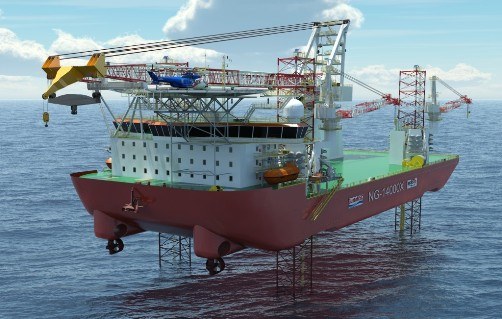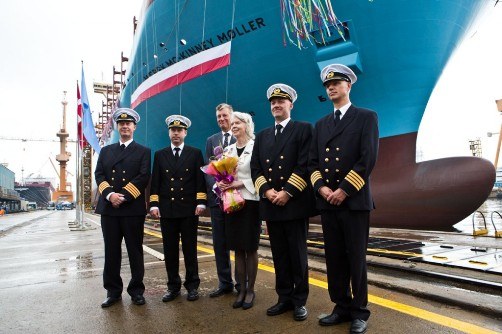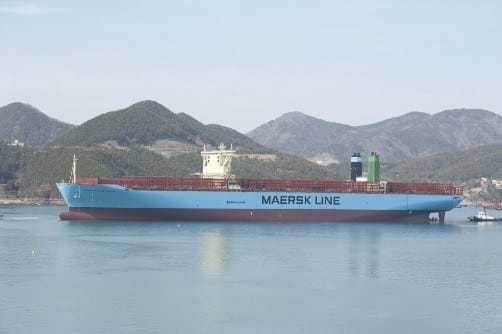Japan’s 1st Coastal Vessel Powered With Chemical-Free Biofuel Successfully Operated
Japan recently achieved a historic milestone by powering a coastal vessel with biofuel derived from used cooking oil that was not chemically treated.
This innovative initiative marks Japan’s first use of this type of biofuel for marine vessels.

The biofuel used in this revolutionary project is a blend of waste cooking oil sourced from Japanese vegetable oils and fats and heavy fuel oil.
This creative strategy is a significant step in Japan’s efforts to investigate alternative fuels for its maritime sector.
A research program on biofuel applications in the maritime industry enabled the supply of this biofuel to vessels in the Chukyo region.
The program was carried out in collaboration with Hanwa Co., Ltd., the biofuel supplier, and Tokyo Steel Manufacturing Co., Ltd., the cargo shipper.
The vessel ran on this biofuel mixture for about a month, navigating the route between Mikawa Bay and Tokyo Bay, with no reported flammability or performance issues.
Fatty Acid Methyl Ester (FAME), produced chemically from waste cooking oil and methanol, has traditionally been the primary raw material for biofuels.
In this project, however, cooking oil was mixed with heavy oil A at a biofuel ratio of 24% in its nearly initial state as straight vegetable oil (SVO).
The lack of methyl esterification or hydrogenation processes in creating SVO suggests that it may result in even more significant reductions in carbon dioxide (CO2) emissions compared to other biofuels.
Furthermore, it has the potential for low-cost production.
Biofuels are considered an environmentally friendly alternative fuel that can be smoothly integrated into vessels without changing the main engines or other critical components.
Biofuels, as emphasised in the “MOL Environmental Vision 2.2” update from April 2023, are a practical means of reducing carbon emissions, particularly in small coastal vessels with a shortage of space for extra machinery or storage tanks required for other alternative fuels.
This coastal vessel initiative comes after a previous sea trial in June that used liquefied biomethane fuel.
By actively participating in such initiatives, the MOL Group helps to reduce and decarbonise ocean transport, furthering Japan’s commitment to sustainable maritime operations.
Reference: MOL
Disclaimer :
The information contained in this website is for general information purposes only. While we endeavour to keep the information up to date and correct, we make no representations or warranties of any kind, express or implied, about the completeness, accuracy, reliability, suitability or availability with respect to the website or the information, products, services, or related graphics contained on the website for any purpose. Any reliance you place on such information is therefore strictly at your own risk.
In no event will we be liable for any loss or damage including without limitation, indirect or consequential loss or damage, or any loss or damage whatsoever arising from loss of data or profits arising out of, or in connection with, the use of this website.
Disclaimer :
The information contained in this website is for general information purposes only. While we endeavour to keep the information up to date and correct, we make no representations or warranties of any kind, express or implied, about the completeness, accuracy, reliability, suitability or availability with respect to the website or the information, products, services, or related graphics contained on the website for any purpose. Any reliance you place on such information is therefore strictly at your own risk.
In no event will we be liable for any loss or damage including without limitation, indirect or consequential loss or damage, or any loss or damage whatsoever arising from loss of data or profits arising out of, or in connection with, the use of this website.
Do you have info to share with us ? Suggest a correction
About Author
Marine Insight News Network is a premier source for up-to-date, comprehensive, and insightful coverage of the maritime industry. Dedicated to offering the latest news, trends, and analyses in shipping, marine technology, regulations, and global maritime affairs, Marine Insight News Network prides itself on delivering accurate, engaging, and relevant information.

About Author
Marine Insight News Network is a premier source for up-to-date, comprehensive, and insightful coverage of the maritime industry. Dedicated to offering the latest news, trends, and analyses in shipping, marine technology, regulations, and global maritime affairs, Marine Insight News Network prides itself on delivering accurate, engaging, and relevant information.
Related Articles
Daily Maritime News, Straight To Your Inbox
Sign Up To Get Daily Newsletters
Join over 60k+ people who read our daily newsletters
By subscribing, you agree to our Privacy Policy and may receive occasional deal communications; you can unsubscribe anytime.




BE THE FIRST TO COMMENT